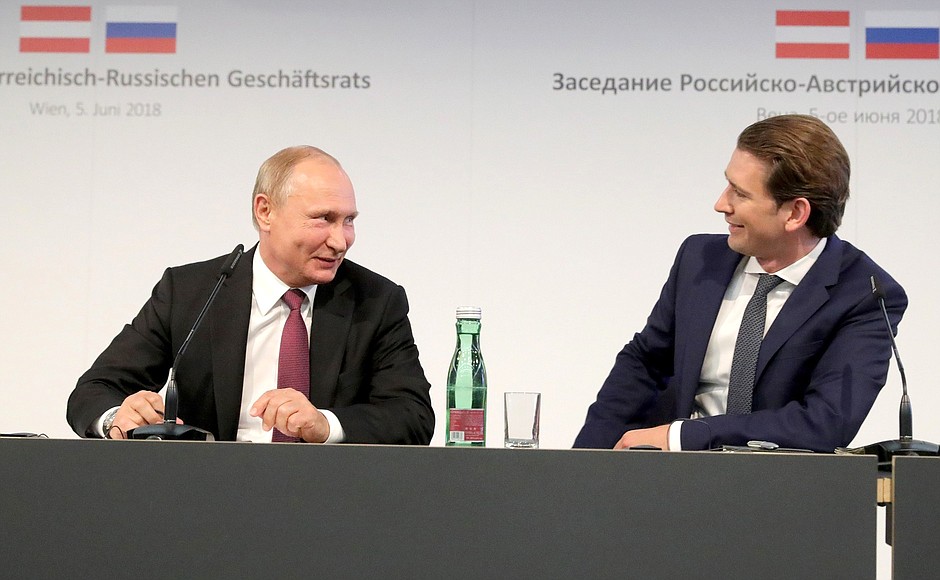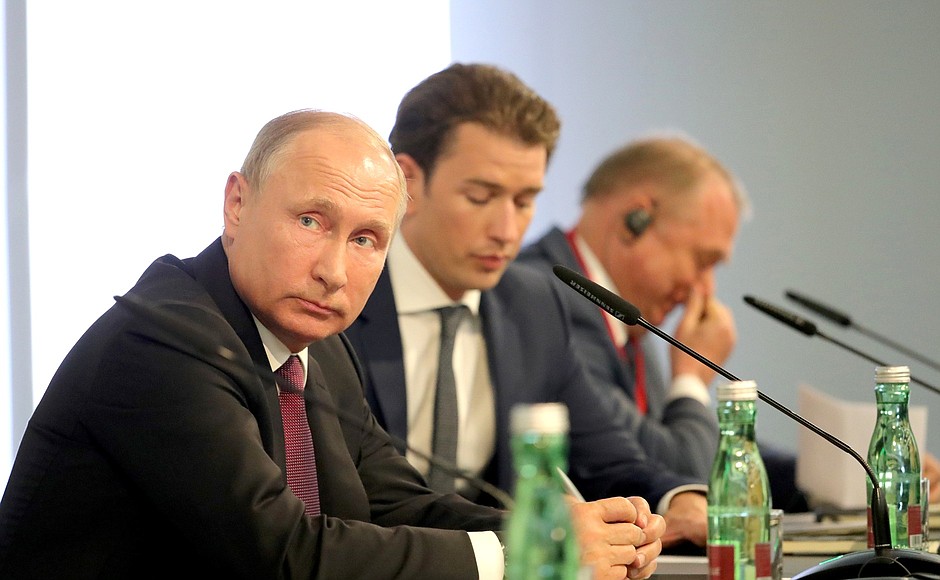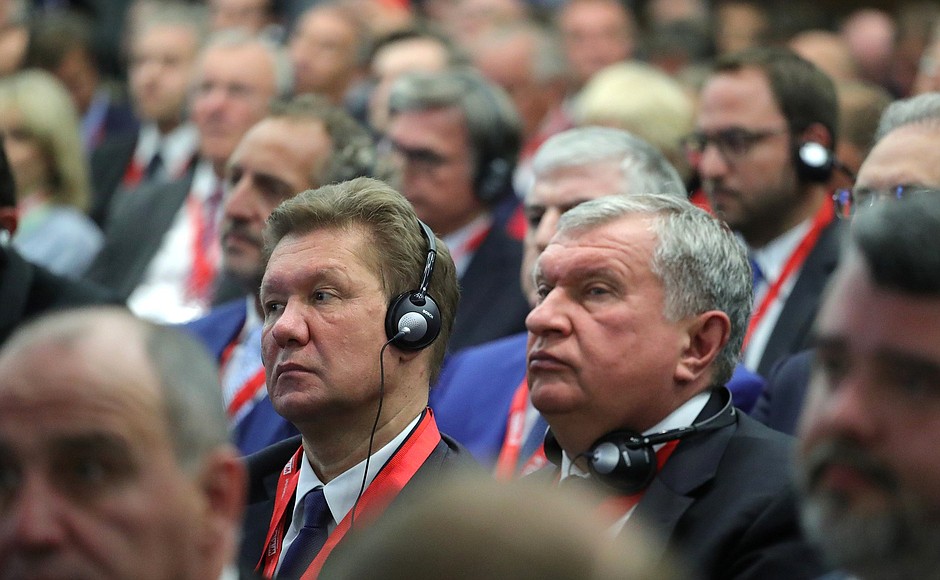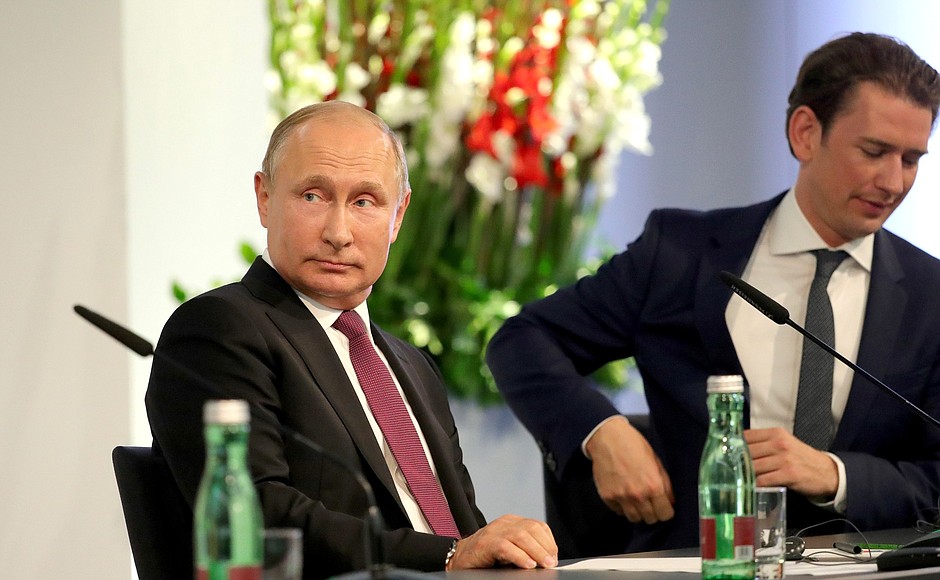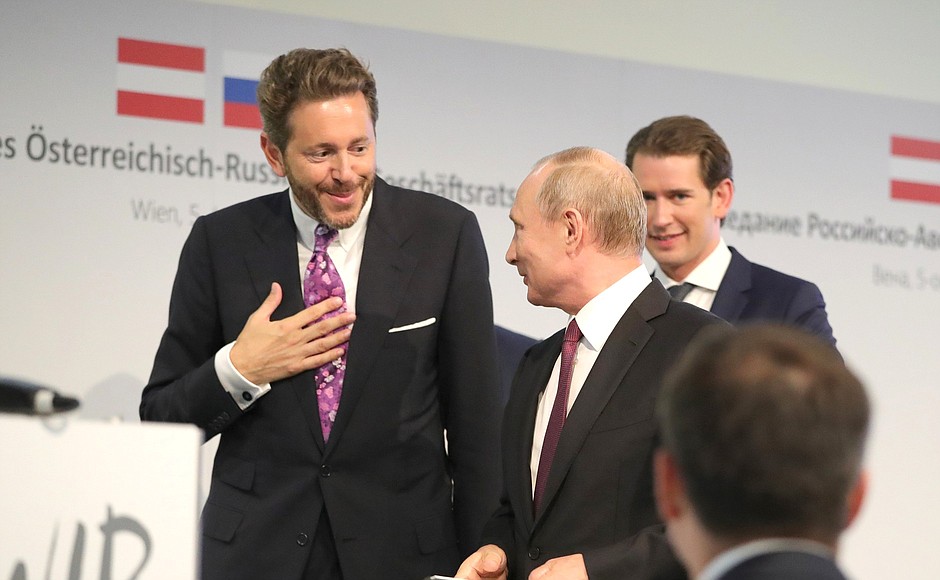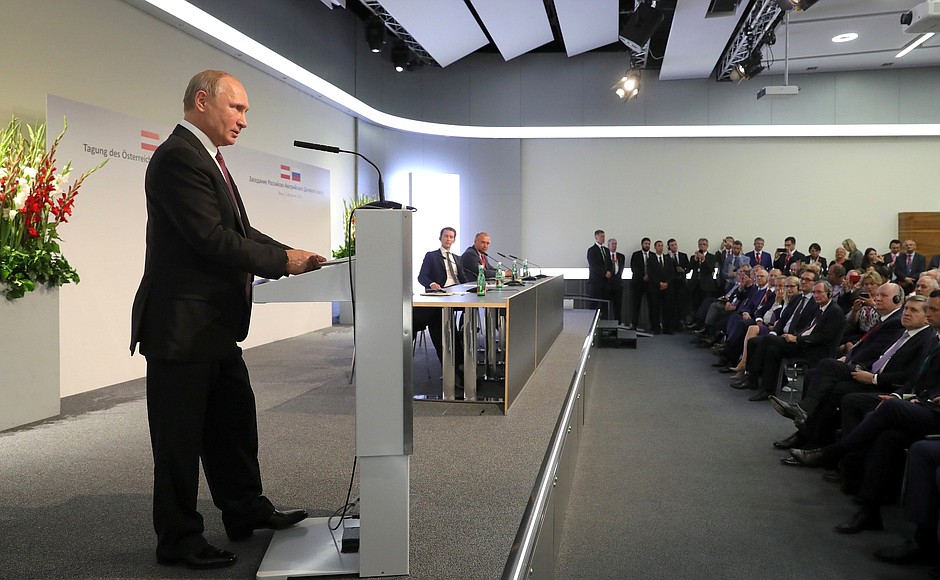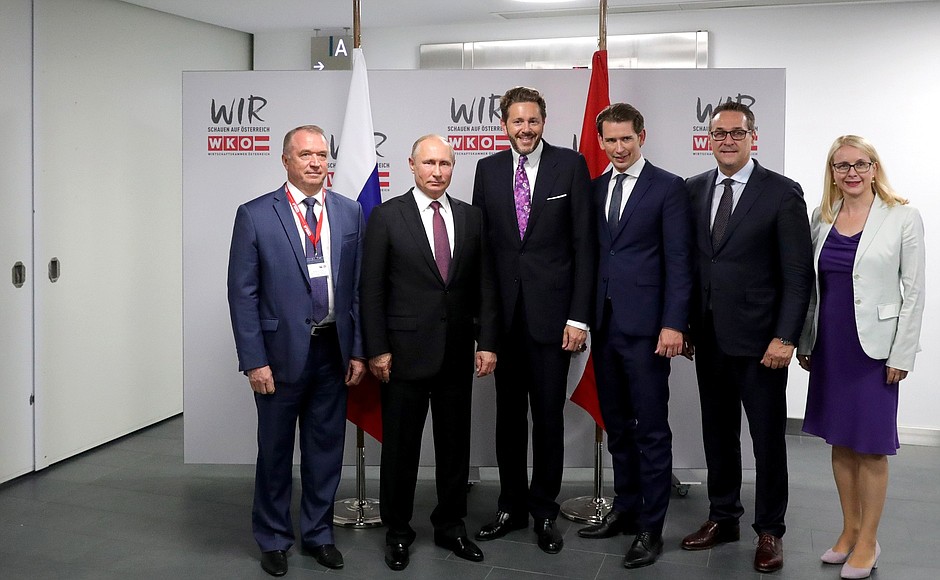President of Russia Vladimir Putin: Mr Federal Chancellor told me before we came here that he would try to be concise so that I would have more time. I will use this generous offer, but I will try not to tire you too much.
First of all, I would like to express my gratitude to Mr Federal Chancellor and the President of the Republic of Austria for inviting me here.
Ladies and gentlemen, I congratulate you on the 50th anniversary of energy, gas cooperation between our countries.
The leading entrepreneurs, financiers and investors from Russia and Austria are attending this meeting. You share a desire to promote mutually beneficial economic cooperation, and you are implementing joint projects in widely different areas, as we have said more than once today.
Austria has always been a reliable partner of Russia. Our countries maintained close contacts for centuries, even in the most difficult periods in their history such as the Cold War.
It is noteworthy that Austria was the first Western country to sign a long-term agreement on Soviet gas deliveries to Europe 50 years ago, in June 1968.
Throughout the subsequent decades, we ensured reliable and uninterrupted energy supplies to Austria. We have delivered over 200 billion cubic metres of gas to our Austrian partners. Last year, Russian gas deliveries to Austria increased by 50 percent to more than 9 billion cubic metres.
Austria is one of the largest transit hubs in Europe, through which Russian gas is delivered to consumers in other European countries. Therefore, the energy security of the European continent is largely ensured by the close energy cooperation between our countries.
We are interested in deepening and expanding our close cooperation. A notable fact in this context is a new agreement on long-term Russian gas deliveries through 2040, which Gazprom and OMV have signed today.
Moreover, Gazprom and OMV are ready to jointly implement the project to build the Nord Stream 2 gas pipeline. It will reduce transit risks and deliver an additional 55 billion cubic metres of environmentally friendly and affordable fuel to the European economy.
Russian and Austrian businesses are actively interacting in other spheres as well. Last year, our bilateral trade increased by over 40 percent to reach $4 billion.
Russia is the second largest investor in the Austrian economy. Russian investment in Austria has reached nearly $24 billion, and Austrian investment in Russia is approaching $5 billion.
Over 1,200 Austrian companies are operating in Russia and there are some 500 Russian-Austrian joint ventures. Most of them are working in the real economy, or more precisely, in construction, industry and high technology.
We appreciate the active involvement of Austrian business in the recent St Petersburg International Economic Forum. The implementation of the bilateral commercial contracts that were signed during the Forum will create new companies and high-paying jobs both in Russia and in the Republic of Austria.
We certainly welcome and support such mutually beneficial projects. For our part, we will continue to do our best to ensure that international, including Austrian businesses feel comfortable in the Russian market.
We will continue our consistent efforts to liberalise business laws, reduce the administrative and tax burden on businesses and improve our financial and banking systems. We are resolved to modernise our infrastructure and social sectors.
I would like to point out the most positive trends in the Russian economy. Last year, our GDP growth was stable, if moderate, of 1.5 percent, and consumer demand increased by 3.4 percent.
Our industrial and agricultural sectors grew by 1.8 percent and 2.6 percent, respectively. We are keeping inflation at a record low level of 2.5 percent. Unemployment has decreased to below 5 percent.
Our trade surplus is growing. It exceeded $130 billion in 2017, growing by 25 percent compared to the year before.
The floating ruble rate maintains the stability of the national currency. Russia is among the world’s leaders in terms of gold and currency reserves. Our sovereign debt is among the smallest in the world – below 20 percent.
Thanks to a responsible budgetary policy, we have reduced the federal budget deficit to 1.5 percent of the GDP and intend to report a budget surplus of 0.5 percent.
(Speaks in German, retranslated) Friends, our cooperation is very good indeed. But it can be much, much better. We can do it, we must do it, and we will do it, but this depends on you.
Thank you very much.
